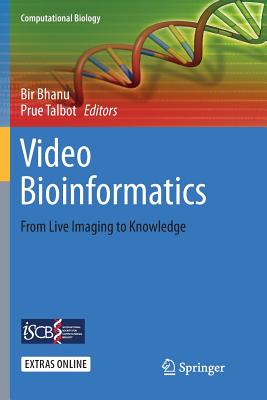The Global Genome : Biotechnology, Politics, and Culture (Hardcover)
暫譯: 全球基因組:生物技術、政治與文化(精裝版)
Eugene Thacker
- 出版商: MIT
- 出版日期: 2005-05-20
- 定價: $1,320
- 售價: 5.0 折 $660
- 語言: 英文
- 頁數: 416
- 裝訂: Hardcover
- ISBN: 0262201550
- ISBN-13: 9780262201551
-
相關分類:
生物資訊 Bioinformatics
立即出貨(限量) (庫存=4)
買這商品的人也買了...
-
 Borland C++ Builder 程式設計
Borland C++ Builder 程式設計$450$225 -
 AutoCAD 2002 2D 實力養成暨評量
AutoCAD 2002 2D 實力養成暨評量$350$276 -
 Operating System Concepts, 6/e (Windows XP Update)
Operating System Concepts, 6/e (Windows XP Update)$1,050$1,029 -
 C++ Builder 6 完全攻略
C++ Builder 6 完全攻略$690$587 -
 Code Reading : The Open Source Perspective (Paperback)
Code Reading : The Open Source Perspective (Paperback)$2,600$2,470 -
 C# 學習經典 (Learn to Program with C#)
C# 學習經典 (Learn to Program with C#)$550$468 -
 SCJP‧SCJD 專業認證指南 (Sun Certified Programmer & Developer for Java 2 #310-305 與310-027)
SCJP‧SCJD 專業認證指南 (Sun Certified Programmer & Developer for Java 2 #310-305 與310-027)$850$723 -
 JSP 2.0 技術手冊
JSP 2.0 技術手冊$750$592 -
 Dreamweaver MX 2004 中文版實站手冊
Dreamweaver MX 2004 中文版實站手冊$490$382 -
 Computer Organization and Design: The Hardware/Software Interface, 3/e(IE) (美國版ISBN:1558606041)
Computer Organization and Design: The Hardware/Software Interface, 3/e(IE) (美國版ISBN:1558606041)$1,200$1,176 -
 Introduction to the Team Software Process (Hardcover)
Introduction to the Team Software Process (Hardcover)$2,800$2,660 -
 CSS 網頁設計師手札 (The CSS Anthology 101 Essential Tips, Tricks & Hacks)
CSS 網頁設計師手札 (The CSS Anthology 101 Essential Tips, Tricks & Hacks)$450$383 -
 Building High Availability Windows Server 2003 Solutions
Building High Availability Windows Server 2003 Solutions$2,110$2,004 -
 The Art of Computer Virus Research and Defense (Paperback)
The Art of Computer Virus Research and Defense (Paperback)$2,120$2,014 -
 Java 2 徹底研究 (Java: The Complete Reference, J2SE, 5/e)
Java 2 徹底研究 (Java: The Complete Reference, J2SE, 5/e)$990$842 -
 Matlab 7 程式設計
Matlab 7 程式設計$680$578 -
 Learning Java, 3/e (Paperback)
Learning Java, 3/e (Paperback)$1,650$1,567 -
 $675Adobe Photoshop CS2 for Photographers: A Professional Image Editor's Guide to the Creative Use of Photoshop for the Macintosh and PC (Paperback)
$675Adobe Photoshop CS2 for Photographers: A Professional Image Editor's Guide to the Creative Use of Photoshop for the Macintosh and PC (Paperback) -
 Head First EJB:SCBCD 專業認證指南 (Head First EJB)
Head First EJB:SCBCD 專業認證指南 (Head First EJB)$880$748 -
 企業級 Linux 系統管理寶典
企業級 Linux 系統管理寶典$750$638 -
 架設我的部落格王國-plog 建構網誌與像簿
架設我的部落格王國-plog 建構網誌與像簿$420$327 -
 The Zen of CSS Design─網頁視覺設計的王道 (The Zen of CSS Design: Visual Enlightenment for The Web)
The Zen of CSS Design─網頁視覺設計的王道 (The Zen of CSS Design: Visual Enlightenment for The Web)$780$663 -
 Linux 架站實務 2006-MIS、規劃、架設、管理、防毒
Linux 架站實務 2006-MIS、規劃、架設、管理、防毒$650$553 -
 線上開店商品攝影技術修煉 (Digital Photographing Course for Web Shop)
線上開店商品攝影技術修煉 (Digital Photographing Course for Web Shop)$520$406 -
 Microsoft Windows Small Business Server 2003 系統整合管理實務
Microsoft Windows Small Business Server 2003 系統整合管理實務$600$474
相關主題
商品描述
Description:
In the age of global biotechnology, DNA can exist as biological material in a test tube, as a sequence in a computer database, and as economically valuable information in a patent. In The Global Genome, Eugene Thacker asks us to consider the relationship of these three entities and argues that -- by their existence and their interrelationships -- they are fundamentally redefining the notion of biological "life itself."
Biological science and the biotech industry are increasingly organized at a global level, in large part because of the use of the Internet in exchanging biological data. International genome sequencing efforts, genomic databases, the development of World Intellectual Property policies, and the "borderless" business of biotech are all evidence of the global intersections of biology and informatics -- of genetic codes and computer codes. Thacker points out the internal tension in the very concept of biotechnology: the products are more "tech" than "bio," but the technology itself is fully biological, composed of the biomaterial labor of genes, proteins, cells, and tissues. Is biotechnology a technology at all, he asks, or is it a notion of "life itself" that is inseparable from its use in the biotech industry?
The three sections of the book cover the three primary activities of biotechnology today: the encoding of biological materials into digital form -- as in bioinformatics and genomics; its recoding in various ways -- including the "biocolonialism" of mapping genetically isolated ethnic populations and the newly pervasive concern over "biological security"; and its decoding back into biological materiality -- as in tissue engineering and regenerative medicine. Thacker moves easily from science to philosophy to political economics, enlivening his account with ideas from such thinkers as Georges Bataille, Georges Canguilhem, Michel Foucault, Antonio Negri, and Paul Virilio. The "global genome," says Thacker, makes it impossible to consider biotechnology without the context of globalism.
Eugene Thacker is Assistant Professor in the School of Literature, Communication, and Culture at the Georgia Institute of Technology.
Table of Contents:
Series Foreword vii Forward by Joel Slayton ix Preface xi Acknowledgments xiii Introduction xv I Encoding / Production 1 1 The Global Genome 3 2 Bioinformatic Bodies and the Problem of "Life Itself" 51 3 A Political Economy of the Genomic Body 91 II Recoding / Distribution 131 4 Biocolonialism, Genomics, and the Databasing of the Population 133 5 The Incorporate Bodies of Recombinant Capital 173 6 Bioinfowar: Biologically Enhancing National Security 209 III Decoding / Consumption 249 7 The Thickness of Tissue Engineering 251 8 Regenerative Medicine: We Can Grow It for You Wholesale 275 9 Conclusion 305 Appendix A: Biotechnology Fields and Areas of Application 321 Appendix B: Techniques and Technologies in Biotechnology Research 327 Appendix C: A Brief Chronology of Bioinformatics 333 Appendix D: Biotechnology and Popular Culture; or, Mutants, Replicants, and Zombies 339 Notes 347 Index 413
商品描述(中文翻譯)
描述:
在全球生物技術的時代,DNA可以作為試管中的生物材料、作為計算機數據庫中的序列,以及作為專利中具有經濟價值的信息。在《全球基因組》中,尤金·薩克(Eugene Thacker)邀請我們思考這三者之間的關係,並主張這些存在及其相互關係根本上重新定義了生物“生命本身”的概念。
生物科學和生物技術產業越來越多地在全球層面上組織,這在很大程度上是因為互聯網在交換生物數據中的使用。國際基因組測序工作、基因組數據庫、世界知識產權政策的發展,以及生物技術的“無邊界”商業活動,都是生物學與信息學交匯的證據——基因代碼與計算機代碼的交匯。薩克指出生物技術概念內部的緊張:產品更“技術”而非“生物”,但技術本身完全是生物的,由基因、蛋白質、細胞和組織的生物材料勞動組成。他質疑生物技術是否真的是一種技術,或者它是否是一種與生物技術產業的使用不可分割的“生命本身”的概念。
本書的三個部分涵蓋了當今生物技術的三個主要活動:將生物材料編碼為數字形式——如生物信息學和基因組學;以各種方式重新編碼——包括對基因隔離的民族群體進行映射的“生物殖民主義”,以及對“生物安全”的新普遍關注;以及將其解碼回生物材料性——如組織工程和再生醫學。薩克自如地在科學、哲學和政治經濟學之間穿梭,並用喬治·巴塔耶(Georges Bataille)、喬治·康吉赫姆(Georges Canguilhem)、米歇爾·福柯(Michel Foucault)、安東尼奧·內格里(Antonio Negri)和保羅·維里里奧(Paul Virilio)等思想家的觀點來活化他的敘述。薩克表示,“全球基因組”使得在全球主義的背景下考慮生物技術變得不可能。
尤金·薩克是喬治亞理工學院文學、傳播與文化學院的助理教授。
目錄:
系列前言
喬爾·斯雷頓的前言
前言
致謝
導言
I 編碼 / 生產
1 全球基因組
2 生物信息學身體與“生命本身”的問題
3 基因組身體的政治經濟學
II 重新編碼 / 分配
4 生物殖民主義、基因組學與人口數據庫化
5 重組資本的公司身體
6 生物信息戰:生物增強國家安全
III 解碼 / 消費
7 組織工程的厚度
8 再生醫學:我們可以為您批發生長
9 結論
附錄A:生物技術領域及應用範圍
附錄B:生物技術研究中的技術與技術
附錄C:生物信息學簡史
附錄D:生物技術與流行文化;或,變種人、複製人和殭屍
註釋










